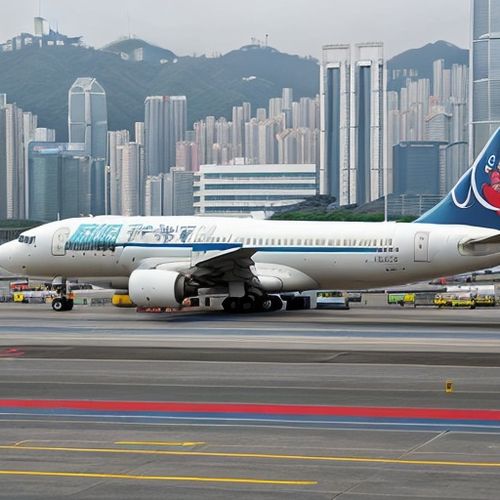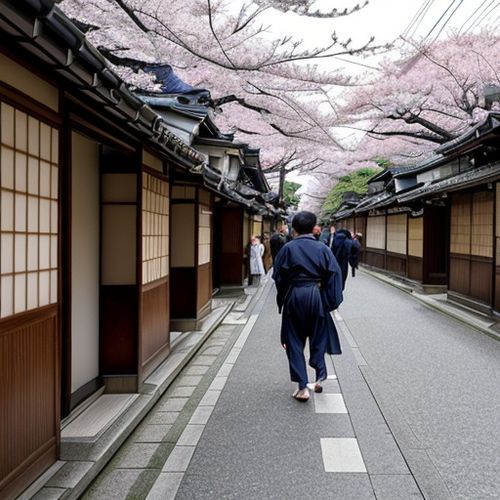The streets of Kyoto are quieter than they should be this season. Cherry blossoms bloom over nearly empty tea houses, and the echoes of shuffling geta sandals are faint compared to pre-pandemic years. Japan's tourism recovery faces an unexpected roadblock – a staggering shortage of 300,000 workers across the industry, from ryokan inns to bullet train snack carts. Even with wages jumping 20% in some desperate cases, "Help Wanted" signs swing indefinitely in the autumn wind.
Behind the glossy brochures of Mount Fuji and bustling Shibuya Crossing lies an industry gasping for staff. The labor drought cuts across every sector: hotels report having only 60% of needed housekeepers, major attractions like Tokyo Disneyland operate at reduced capacity, and regional airports cancel flights due to lack of ground handlers. "We used to have fifty applicants for one front desk position," sighs a Kyoto hotel manager, her nail tapping an untouched stack of applications. "Now we beg candidates to show up for interviews."
The staffing crisis stems from a perfect storm of demographic shifts and pandemic aftershocks. Nearly 30% of Japan's hospitality workforce vanished during COVID-19 closures, many middle-aged workers permanently switching to manufacturing or logistics jobs that offered stability. Younger generations increasingly shun the industry's long hours and perceived low prestige – a cultural attitude that 20% pay bumps fail to overcome. "Money isn't the issue," explains a labor economist at Waseda University. "It's about dignity. Serving tea to tourists still carries stigma, no matter the salary."
Regional areas feel the pinch most acutely. In Hokkaido, where foreign skiers once fueled winter booms, resorts operate at half-capacity despite international travelers returning. A Niseko hotelier recounts turning away ¥500,000/week bookings: "No staff means no room service, no ski valets. Wealthy clients won't pay premium prices for hostels." The scarcity creates vicious cycles – overworked employees quit, worsening conditions for remaining staff.
Creative solutions emerge amidst the struggle. Some businesses recruit Southeast Asian workers through special visa programs, while others invest heavily in automation. A Nagoya hotel chain now uses robot bellhops and AI concierges, their mechanical voices greeting guests in eight languages. Yet cultural resistance persists – many elderly Japanese guests still prefer human interaction, leaving hotels caught between technological and human solutions.
The government's scramble to fix the crisis reveals deeper societal cracks. Immigration policies remain contentious despite relaxed rules for blue-collar workers. Traditional gender roles also play a part – few men apply for housekeeping roles, and women still face barriers in management positions. "We're fighting three battles," admits a tourism ministry official. "Labor shortage, outdated perceptions, and global competition for talent."
As golden week approaches, industry leaders warn of worsening service cuts. Some ryokans now ask guests to reuse towels and decline daily room cleaning, while restaurants eliminate lunch service to concentrate on dinner. The famed Japanese omotenashi hospitality, it seems, is becoming a casualty of arithmetic. "We perfected the art of service," muses a third-generation onsen owner, watching another employee walk out. "Now we must learn the science of survival."
Tourists may soon notice subtle changes – less frequent room turn-downs, buffet selections shrinking, check-in lines growing longer. Yet the warmth of Japanese hospitality persists where it can. At a Kyoto inn, a seventy-year-old okami (proprietress) still personally greets each guest with tea, though she now works sixteen-hour days. "The soul of travel isn't in spotless sheets or perfect schedules," she says, serving another cup with trembling hands. "It's in the meeting of hearts. That, we still have plenty of."

By Elizabeth Taylor/Apr 11, 2025

By Christopher Harris/Apr 11, 2025

By William Miller/Apr 11, 2025

By Rebecca Stewart/Apr 11, 2025

By Megan Clark/Apr 11, 2025

By Grace Cox/Apr 11, 2025

By Benjamin Evans/Apr 11, 2025

By Victoria Gonzalez/Apr 11, 2025

By Thomas Roberts/Apr 11, 2025

By James Moore/Apr 11, 2025

By George Bailey/Apr 11, 2025

By Lily Simpson/Apr 11, 2025

By Megan Clark/Apr 11, 2025

By Jessica Lee/Apr 11, 2025

By Olivia Reed/Apr 11, 2025

By George Bailey/Apr 11, 2025

By Emily Johnson/Apr 11, 2025

By Victoria Gonzalez/Apr 11, 2025

By William Miller/Apr 11, 2025

By Grace Cox/Apr 11, 2025